- Home
- Timothy Zahn
Chaos Rising Page 2
Chaos Rising Read online
Page 2
“The Aristocra? No.” Ba’kif matched Thurfian’s smile. “But their rivalries are.”
“I imagine so,” Thurfian conceded, lowering his eyes again to Vurawn’s records. If the boy lived up to even half of his potential, he would be a worthy addition to the Mitth family.
Once, thousands of years ago, families had been just that: groups of people bound by blood and marriage and closed to everyone else. But the inherent limitations of such a system had led to decline and stratification, and some of the patriarchs had begun experimenting with methods for absorbing outsiders that didn’t involve marriage. The result had been the current system, where likely prospects could be brought in as merit adoptives, with those who proved themselves especially worthy rising to Trial-born and possibly even ranking distant.
Vurawn certainly fit the criteria for becoming a merit adoptive. More important, if the Mitth took him the Irizi wouldn’t be able to snatch him up. One of the many family rivalries Ba’kif was no doubt thinking of when he spoke of predictability.
But even that was beside the point. The Syndicure had finally agreed to the Defense Force’s long-standing pleas to expand its capabilities and mandate, and the newly formed Expansionary Defense Fleet was the result. Its mission was to watch over Chiss interests in the parts of the Chaos extending beyond the Ascendancy’s borders, to learn who was out there and assess their level of threat.
And for once, the Aristocra had actually been generous with their military funding. The Expansionary Fleet’s new ships, bases, and support facilities were already under construction, and they were going to need all the competent officers and warriors they could get.
This Vurawn looked like someone who would fit into such a role. A man who might make a name there, both for himself and for his family.
“Fine,” he said. “Let’s go talk to him. See how he stands up to a proper interrogation.”
* * *
—
“I trust the compound isn’t too far away,” Vurawn said as Thurfian’s car flew swiftly across the Rentor landscape. “I’m already missing all of today’s classes. My instructors would be displeased if I missed tomorrow’s, as well.”
“You’ll be all right,” Thurfian said, hearing the strained patience in his voice. Did the boy really not understand the depth of the honor that had been bestowed upon him?
Apparently not. Attending his classes was important. Adoption into one of the Nine Ruling Families wasn’t.
Rentor wasn’t exactly a political and cultural hub, and Thurfian knew he had to make allowances for a certain degree of ignorance. Even so, such a lack of awareness set Vurawn apart from even the unsophisticated commoners around him.
Still, if Ba’kif’s assessment was correct, the boy would be heading for a military career. Politics weren’t nearly so important there.
If Vurawn was rematched to the Mitth, which was hardly yet guaranteed. Thurfian had sent in his own report, but there was still an interview to be conducted by the Councilors who oversaw Mitth interests on Rentor, followed possibly by a short meeting with the local Patriel herself if the Councilors were suitably impressed. Once all that was over, the results would be forwarded to the homestead on Csilla for final review, and only then would Vurawn learn whether or not he’d been selected to be a Mitth merit adoptive. The whole process typically took two to three months; Thurfian had seen it take as many as six—
His questis signaled. Pulling it from his pocket, he keyed it.
It was a script message. A very brief script message.
Vurawn accepted as merit adoptive.
Thurfian stared. Accepted?
Impossible. The interviews—the Patriel evaluation—the homestead review—
But there it was, staring him in the face. The process had been short-circuited by someone, and none of the usual procedures were going to matter.
In fact, none of them were now even necessary. Presumably the Patriel had received the same message, and the only thing that would happen when they reached the compound would be the brief ceremony detaching Vurawn from the Kivu family and rematching him to the Mitth.
“Is there trouble?” Vurawn asked.
“No, nothing,” Thurfian said, putting the questis back in his pocket. So on the strength of Thurfian’s own interrogation, plus perhaps the boy’s school records and evaluations, he was accepted?
That made no sense. Impressive though the boy might be, there still had to be more to it. Clearly, someone high up in the family had been keeping watch on Thurfian’s mission today. That same someone had apparently also been following Vurawn’s life and had already decided that taking him was in the Mitth’s best interests.
So if the decision had already been made, why had Thurfian been sent to do an interview in the first place? Surely his recommendation didn’t hold that much weight with the homestead.
Of course it didn’t. Thurfian had been sent here to help cover the fact that Vurawn had already been selected for rematching. Pure politics, because with the Nine Families, it was always about politics.
He frowned, his thoughts belatedly catching up with him. He hadn’t reacted in any way when he received the message—he’d been an Aristocra and political creature long enough to know how to keep emotions like surprise out of his face and voice. Yet somehow Vurawn had recognized that the message had been disturbing enough to inquire about it.
He eyed the boy again. That kind of observational skill wasn’t common. Maybe there was more there than he’d realized. Some spark that would someday bring honor and glory to himself and his family.
Apparently someone at the homestead thought so, too, and that someone had determined that the family on the receiving end of that glory would be the Mitth.
There was still the question of whether or not the boy would be sent to the Taharim Academy. But with Vurawn’s unidentified benefactor pulling the strings, Thurfian expected that would also be a foregone conclusion.
He scowled at the landscape racing past beneath them. He didn’t like being manipulated. He very much didn’t like proper and time-honored procedures being thrown out the window on someone’s whim.
But he was an Aristocra of the Mitth, and it wasn’t his job to approve or disapprove of his family’s decisions. His job was merely to do the tasks he was given.
Perhaps someday that would change.
“No, no trouble,” he said. “I just received word that you’ve been accepted.”
Vurawn turned widened eyes on him. “Already?”
“Yes,” Thurfian confirmed, secretly enjoying the other’s confusion. So he could be surprised. And at least he knew enough politics to recognize the unusual nature of the situation. “We’ll presumably go through the ceremony when we reach the compound.”
“As a merit adoptive, I assume?”
So the kid also knew something about the Ruling Families. “That’s where everyone starts,” Thurfian told him. “If and when you go through the Trials, you’ll move up to Trial-born.”
“And then ranking distant,” Vurawn said thoughtfully.
Thurfian huffed out a silent breath. That, at least, would never happen. Not to someone from such an insignificant family. “Perhaps. For now, just start getting used to the name Mitth’raw’nuru.”
“Yes,” the boy murmured.
Thurfian studied him out of the corner of his eye. The boy might bring glory to the Mitth, the way Ba’kif thought. He might just as easily bring shame and regret. That was how the universe operated.
But either way, it was done.
Vurawn was no more. In his place now stood Thrawn.
There were times, Ba’kif thought distantly, when it was good for a man to stare out of the relative stability of the Chiss Ascendancy into the Chaos. It was a chance to appreciate all that the Ascendancy was, and all that it meant: order and steadfastness, security and po
wer, light and culture and glory. It was an island of calm amid the twisted hyperspace lanes and the ever-changing pathways that slowed travel and stunted trade for all those who lived out there.
The Chaos hadn’t always been that way, or so the legends went. Once, at the dawn of space travel, it had been no more difficult to move between any of the stars than it was now to travel in the Ascendancy. But then, millennia ago, a series of chained supernova explosions throughout the region had sent huge masses tumbling at high speeds between the stars, some of them demolishing asteroids or whole worlds, others sparking more supernovas with their near-lightspeed impacts. The movement of all those masses, coupled with regions of heavy electromagnetic flux, resulted in the constantly changing hyperlanes that made any voyage longer than a couple of star systems difficult and dangerous.
But that instability was a two-bladed knife. The limitations that stifled travel and thus helped protect the Chiss from invasion also slowed recon and intelligence gathering. There were dangers out there in the darkness, hidden worlds and tyrants who sought conquest and destruction.
One of those tyrants had apparently now set his sights on the Ascendancy.
“Are you certain this is the way?” he asked the young woman at the helm of their shuttle.
“Yes, General, I am,” she said. A flicker of controlled pain crossed her face. “I was part of the team that found it.”
Ba’kif nodded. “Of course.” There was another short silence, another moment of gazing out at the distant stars—
“There,” the woman said suddenly. “Ten degrees to starboard.”
“I see it,” Ba’kif said. “Take us alongside.”
“Yes, sir.”
Their ship moved forward, steadily closing the distance. Ba’kif gazed out the viewport, his stomach tight. It was one thing to see holos and recordings of a destroyed refugee ship. It was something else entirely to look personally upon the stark reality of slaughter.
Beside him, Senior Captain Thrawn stirred. “This wasn’t pirates,” he said.
“Your reasoning?” Ba’kif asked.
“The damage pattern is designed to destroy, not immobilize.”
“Perhaps the majority of the destruction was inflicted after they plundered it.”
“Unlikely,” Thrawn said. “The angle of the majority of the shots indicates an attack from the rear.”
Ba’kif nodded. That was the same analysis and logic he’d followed, and it had taken him to the same conclusion.
That logic plus one more crucial, terrible fact.
“Let’s get the obvious question out of the way,” he said. “Is this ship at all related to the ones that attacked Csilla two days ago?”
“No,” Thrawn said promptly. “I can see no artistic or architectural connection between them at all.”
Ba’kif nodded again. That, too, had been his conclusion. “So it’s possible the two incidents are unrelated.”
“If so, it would be an interesting coincidence,” Thrawn said. “I consider it more likely that the attack on Csilla was a diversion to draw our attention inward and away from this event.”
“Indeed,” Ba’kif agreed. “And given the cost of the diversion, it further suggests someone really doesn’t want us taking a good look at this ship.”
“Indeed,” Thrawn said thoughtfully. “I wonder why they left the wreckage instead of destroying it completely.”
“I can tell you that, sir,” the pilot put in. “I was on the patrol ship that spotted the attack. We were too far away to intervene or to get any real sensor data, but the attacker apparently spotted our approach and decided not to risk a confrontation. By the time we arrived and began our investigation, it had escaped back into hyperspace.”
“So we already knew about the attack,” Ba’kif added. “The diversion was then presumably an attempt to push it out of our attention.”
“At least until more time had passed,” Thrawn said. “How much time, sir, do you estimate?”
Ba’kif shook his head. “Impossible to say for certain. But given the Syndicure’s outrage at the Csilla attack, I’m guessing they’ll keep up the pressure on the fleet to find the culprits for at least the next three or four months. Assuming, of course, that we don’t identify them before then.”
“We won’t,” Thrawn said. “From the recordings I saw of the attack, the ships looked old, even marginally obsolete. Whoever their master was, he chose ships that’ll most likely bear little resemblance to what he’s using now.”
Ba’kif smiled grimly. “But then, a little resemblance may be all we need.”
“Perhaps.” Thrawn gestured toward the wrecked ship. “I assume we’ll be going aboard?”
Ba’kif looked at the pilot. Her cheeks were tight, the skin around her eyes pinched. She’d been aboard once, and clearly had no desire to go back. “Yes,” he said. “Just the two of us. The shuttle crew will stay here on watch.”
“Understood,” Thrawn said. “With your permission, I’ll prepare the boarding suits.”
“Go ahead,” Ba’kif said. “I’ll join you in a moment.”
He waited until Thrawn had left. “I presume you left everything as you found it?” he asked the pilot.
“Yes, sir,” she said. “But…”
“But?” Ba’kif prompted.
“I don’t understand why you wanted it left intact instead of bringing it in for a more thorough investigation,” she said. “I can’t see how anything in there will do you any good.”
“You may be surprised,” Ba’kif said. “We may both be.”
He looked toward the hatch where Thrawn had gone. “In fact, I’m counting on it.”
* * *
—
Ba’kif had seen the holos the patrol had sent to the Syndicure on Csilla and the Expansionary Defense Fleet headquarters on Naporar.
Like the ship itself, the reality was far worse.
Wrecked consoles. Fried data storage banks and modules. Destroyed sensor clusters and analysis pods.
And bodies. Lots of bodies.
Or rather, the remains of bodies.
“This wasn’t a freighter.” Thrawn’s voice came softly through Ba’kif’s helmet speaker. “It was a refugee ship.”
Ba’kif nodded silently. Adults, midagers, children—the whole range of life experience had been represented.
All of them slaughtered with the same brutal efficiency.
“What did the fleet’s analysis give us?” Thrawn asked.
“Precious little,” Ba’kif admitted. “As you already noted, the ship’s design isn’t one we’ve seen before. The victims’ nucleic code isn’t in our data listings. The size of the ship suggests it didn’t travel overly far, but there are a lot of planetary systems and small nation clusters in the Chaos that we’ve never visited.”
“And their physical characteristics…” Thrawn waved a hand.
“Not easy to read,” Ba’kif said grimly, shivering in spite of himself. Explosive rounds had left very little for even the best reconstruction team to work with. “I was hoping there might be something you could glean from what they left behind.”
“There are a few things,” Thrawn said. “The basic ship design has certain characteristics that likely translate to other aspects of their culture. Their clothing, too, is distinctive.”
“In what way?” Ba’kif asked. “Material? Design? Patterning?”
“All that, and more,” Thrawn said. “There’s a certain air about such things, an overall feeling that forms in my mind.”
“Nothing you can codify for us?”
Thrawn turned to him, and through his faceplate Ba’kif saw the other’s wry smile. “Really, General,” he said. “If I could write all this down, I certainly would.”
“I know,” Ba’kif said. “It would be a lot easier for all of us i
f you could.”
“Agreed,” Thrawn said. “But rest assured I’ll be able to recognize these beings when I see them again. I presume your plan is to search for the ship’s point of origin?”
“Under normal circumstances, I would definitely do so,” Ba’kif said. “But with the Syndicure in its current state of uproar and outrage, it might be difficult to detach a task force from Ascendancy defense.”
“I’m prepared to go alone if necessary.”
Ba’kif nodded. He’d expected Thrawn to volunteer, of course. If there was one thing the man enjoyed, it was chasing down enigmas and working through puzzles. Add in his unique ability to see connections others couldn’t—and the fact that a large percentage of the Aristocra would be happy to have him out of their sight for a while—and he was the perfect person for the job.
Unfortunately, it wasn’t that easy.
“I’ll need something reasonably well equipped for a mission of this sort,” Thrawn continued, looking around at the wreckage. “The Springhawk would do quite well.”
“I thought that would be next,” Ba’kif said sourly. “You do know it was taken away from you for a reason, right?”
“Of course,” Thrawn said. “Supreme Admiral Ja’fosk and the Council were displeased by my actions against the Vagaari pirates. But surely that anger has dissipated by now.”
“Perhaps,” Ba’kif said evasively. “However…well. Let’s just say that your reputation among the other Council members continues to be tenuous.” Certainly the Defense Hierarchy Council’s annoyance at Thrawn’s actions had been the official reason for him being removed as the Springhawk’s commander. Not just his unauthorized action against the pirates, but also the subsequent death of Syndic Mitth’ras’safis and the loss of valuable alien technology.
But behind the scenes, there’d been other factors in play. Thrawn’s successful campaign, whether the Aristocra approved of it or not, had elevated the Springhawk’s name and prestige, and the Ufsa family had decided they wanted the ship to be commanded by one of their own. A quiet petition to the Council, probably an even quieter exchange of favors or future owings, and Thrawn was out.

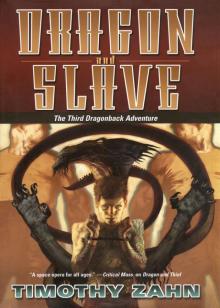 Dragonback 03 Dragon and Slave
Dragonback 03 Dragon and Slave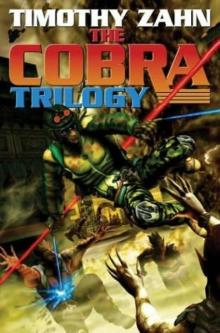 Cobra Bargain
Cobra Bargain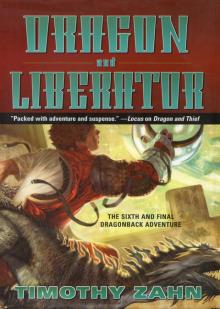 Dragonback 06 Dragon and Liberator
Dragonback 06 Dragon and Liberator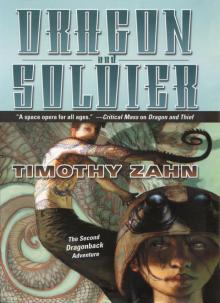 Dragonback 02 Dragon and Soldier
Dragonback 02 Dragon and Soldier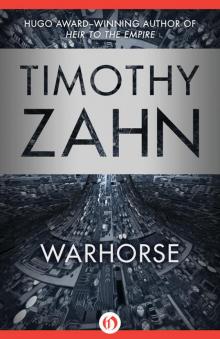 Warhorse
Warhorse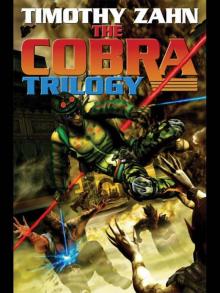 The Cobra Trilogy
The Cobra Trilogy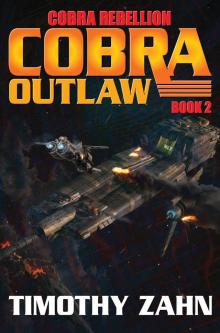 Cobra Outlaw - eARC
Cobra Outlaw - eARC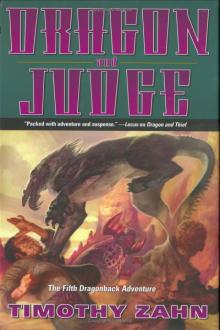 Dragon and Judge
Dragon and Judge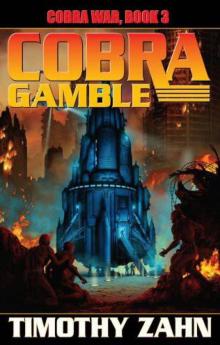 Cobra Gamble
Cobra Gamble The Domino Pattern
The Domino Pattern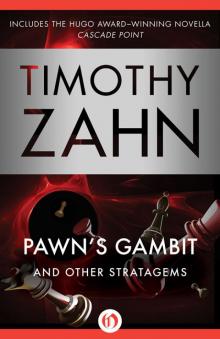 Pawn's Gambit: And Other Stratagems
Pawn's Gambit: And Other Stratagems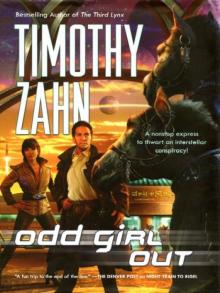 Odd Girl Out
Odd Girl Out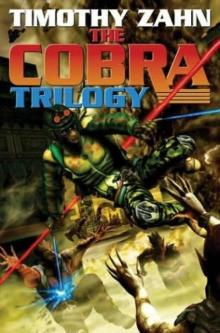 Cobra Strike
Cobra Strike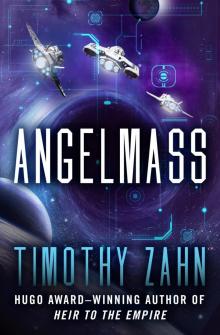 Angelmass
Angelmass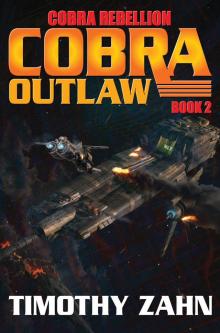 Cobra Outlaw
Cobra Outlaw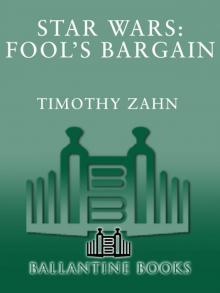 Heir to the Empire
Heir to the Empire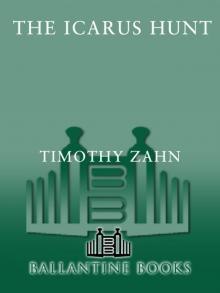 The Icarus Hunt
The Icarus Hunt Star Wars - Thrawn Trilogy - The Last Command 03
Star Wars - Thrawn Trilogy - The Last Command 03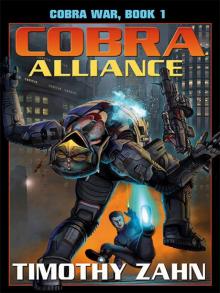 Cobra Alliance
Cobra Alliance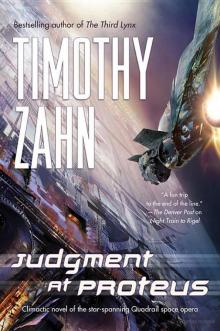 Judgment at Proteus
Judgment at Proteus Star Wars - Thrawn Trilogy - Dark Force Rising 02
Star Wars - Thrawn Trilogy - Dark Force Rising 02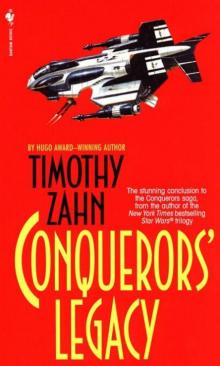 Conquerors' Legacy
Conquerors' Legacy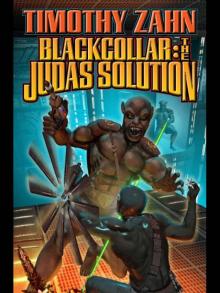 The Judas Solution
The Judas Solution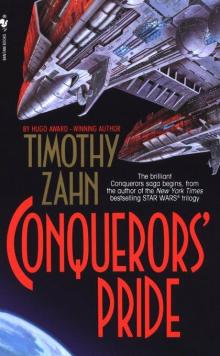 Conquerors' Pride
Conquerors' Pride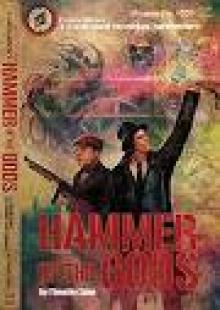 Hammer of the Gods
Hammer of the Gods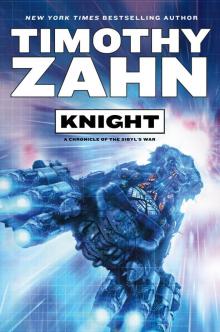 Knight
Knight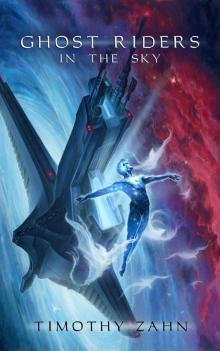 Ghost Riders in the Sky
Ghost Riders in the Sky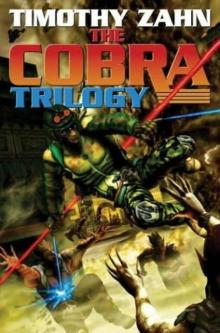 Cobra
Cobra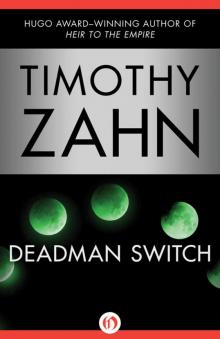 Deadman Switch
Deadman Switch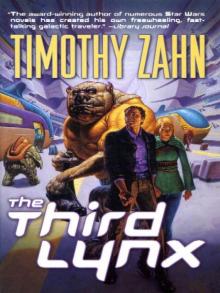 The Third Lynx
The Third Lynx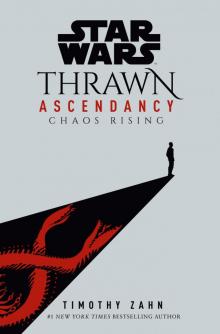 Chaos Rising
Chaos Rising Star Wars - Thrawn Trilogy - Heir to the Empire 01
Star Wars - Thrawn Trilogy - Heir to the Empire 01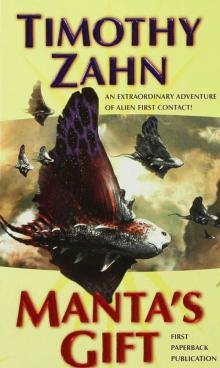 Manta's Gift
Manta's Gift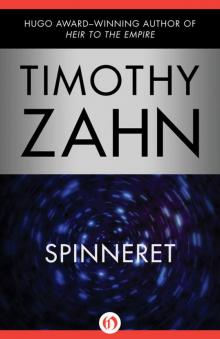 Spinneret
Spinneret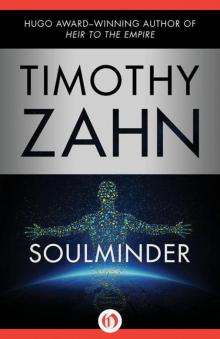 Soulminder
Soulminder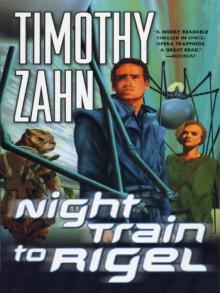 Night Train to Rigel
Night Train to Rigel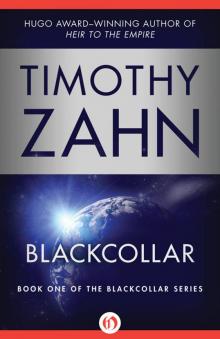 Blackcollar
Blackcollar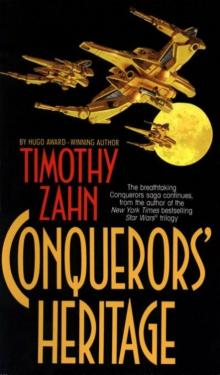 Conquerors' Heritage
Conquerors' Heritage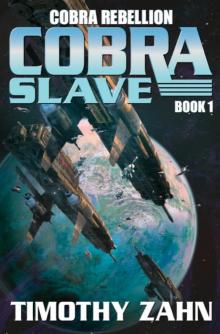 Cobra Slave
Cobra Slave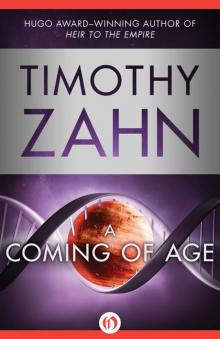 A Coming of Age
A Coming of Age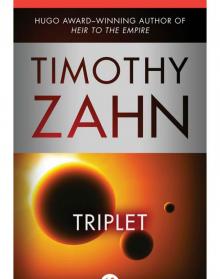 Triplet
Triplet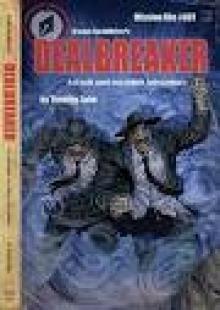 Dealbreaker
Dealbreaker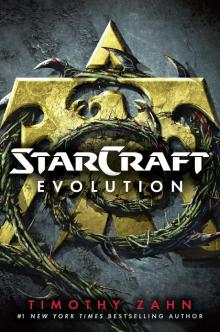 StarCraft
StarCraft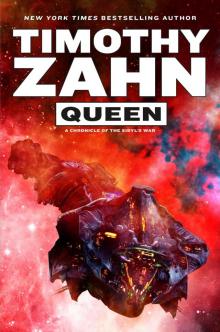 Queen
Queen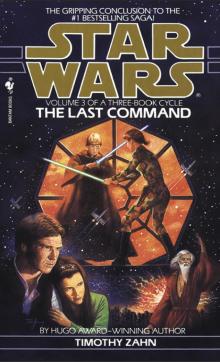 The Last Command
The Last Command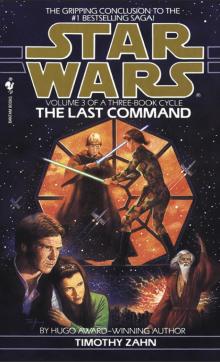 Star Wars: The Last Command
Star Wars: The Last Command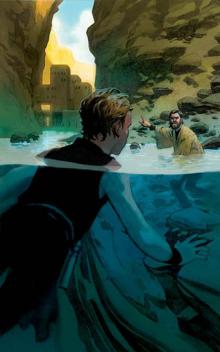 Star Wars Clone Wars: Changing Seasons
Star Wars Clone Wars: Changing Seasons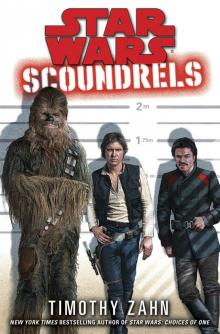 Scoundrels
Scoundrels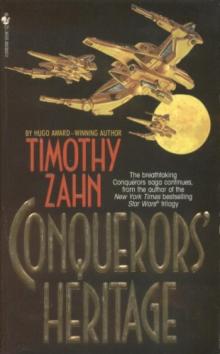 Conquerors 2 - Conquerors' Heritage
Conquerors 2 - Conquerors' Heritage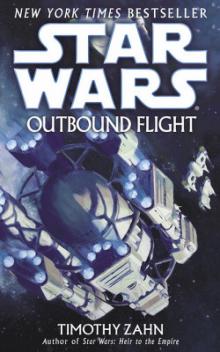 Outbound Flight (звёздные войны)
Outbound Flight (звёздные войны)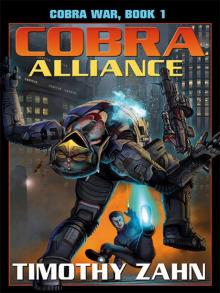 Cobra Alliance-Cobra War Book 1
Cobra Alliance-Cobra War Book 1 Hero of Cartao 2. Hero's Rise
Hero of Cartao 2. Hero's Rise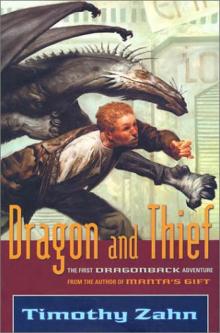 Dragon and Thief d-1
Dragon and Thief d-1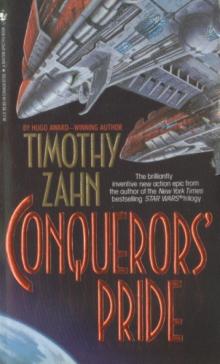 Conquerors 1 - Conquerors' Pride
Conquerors 1 - Conquerors' Pride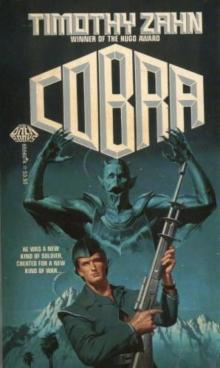 Cobra Alliance cw-1
Cobra Alliance cw-1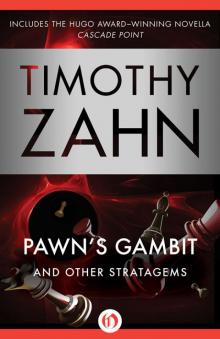 Pawn’s Gambit
Pawn’s Gambit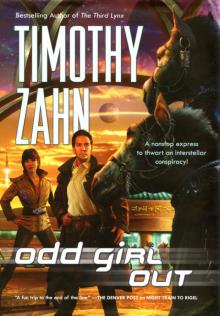 Odd Girl Out q-3
Odd Girl Out q-3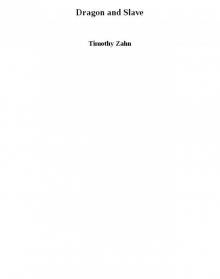 Dragon and Slave
Dragon and Slave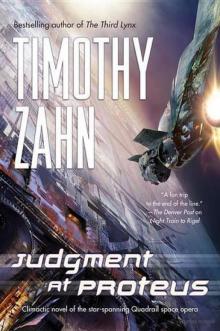 Judgment at Proteus q-5
Judgment at Proteus q-5 Night Train to Rigel (Quadrail Book 1)
Night Train to Rigel (Quadrail Book 1)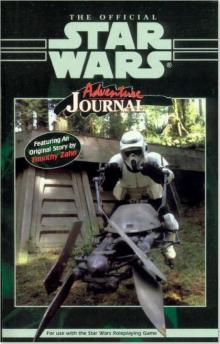 Star Wars: Adventure Journal 11: Command Decision
Star Wars: Adventure Journal 11: Command Decision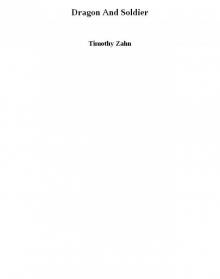 Dragon And Soldier
Dragon And Soldier Hero of Cartao 3. Hero's End
Hero of Cartao 3. Hero's End For Love of Amanda
For Love of Amanda Distant Friends and Other Stories
Distant Friends and Other Stories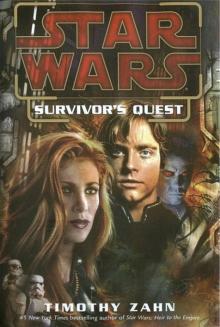 Star Wars: Survivor's Quest
Star Wars: Survivor's Quest Hero of Cartao 1. Hero's call
Hero of Cartao 1. Hero's call The Domino Pattern (Quadrail Book 4)
The Domino Pattern (Quadrail Book 4)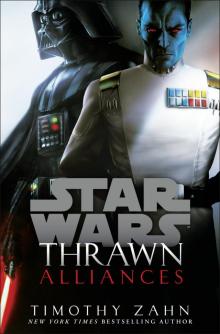 Thrawn_Alliances_Star Wars
Thrawn_Alliances_Star Wars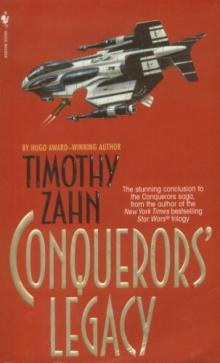 Conquerors 3 - Conquerors' Legacy
Conquerors 3 - Conquerors' Legacy The Blackcollar Series
The Blackcollar Series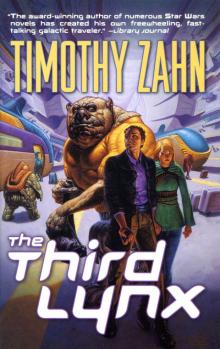 The Third Lynx q-2
The Third Lynx q-2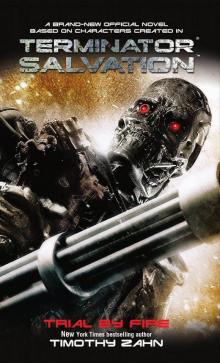 Terminator Salvation: Trial by Fire
Terminator Salvation: Trial by Fire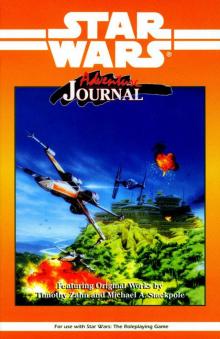 Star Wars - Mist Encounter
Star Wars - Mist Encounter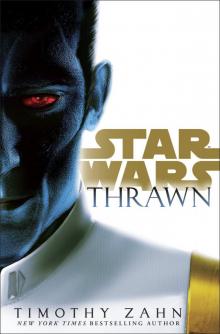 Thrawn
Thrawn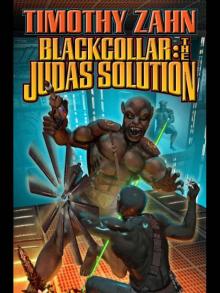 Blackcollar-The Judas Solution
Blackcollar-The Judas Solution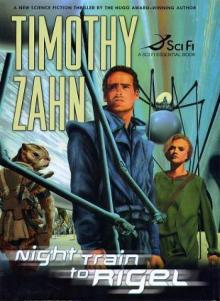 Night Train to Rigel q-1
Night Train to Rigel q-1 Cascade Point
Cascade Point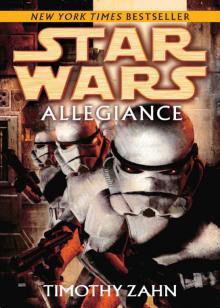 Allegiance
Allegiance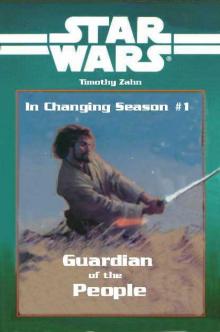 Star Wars - In Changing Season 1 - Guardian of the People
Star Wars - In Changing Season 1 - Guardian of the People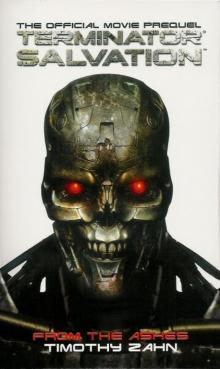 Terminator Salvation - From the Ashes ts-2
Terminator Salvation - From the Ashes ts-2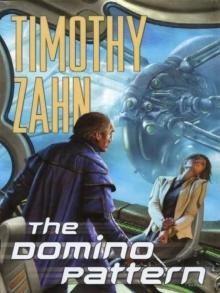 The Domino Pattern q-4
The Domino Pattern q-4 The Big Picture
The Big Picture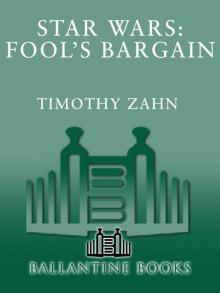 Star Wars: Fool's Bargain
Star Wars: Fool's Bargain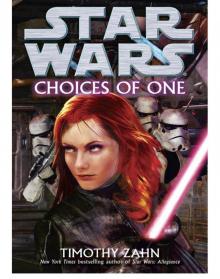 Star Wars: Choices of One
Star Wars: Choices of One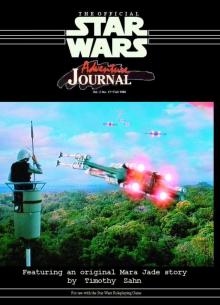 Star Wars - Jade Solitaire - Unpublished
Star Wars - Jade Solitaire - Unpublished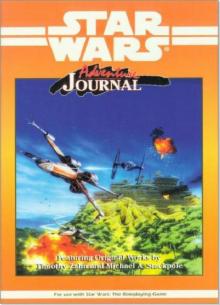 Star Wars: Adventure Journal: Mist Encounter
Star Wars: Adventure Journal: Mist Encounter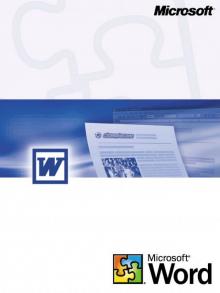 Outbound Flight
Outbound Flight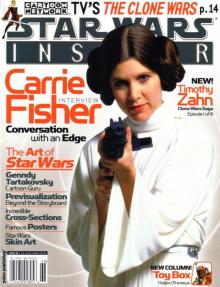 Star Wars - The Hero of Cartao - Part 1 - Hero's Call
Star Wars - The Hero of Cartao - Part 1 - Hero's Call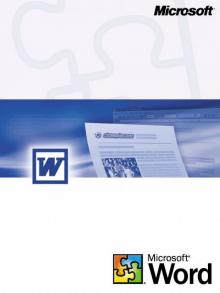 Thrawn 1 - Specter of the Past
Thrawn 1 - Specter of the Past Survivor's Quest
Survivor's Quest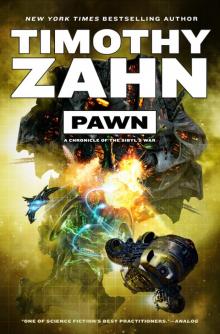 Pawn
Pawn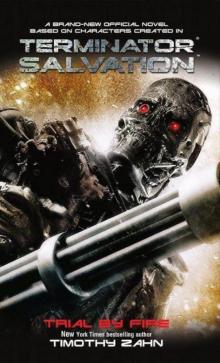 Trial By Fire ts-4
Trial By Fire ts-4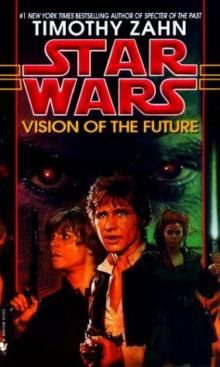 Vision of the future swhot-2
Vision of the future swhot-2 Star Song and Other Stories
Star Song and Other Stories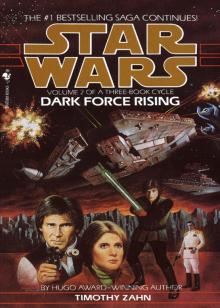 Dark Force Rising
Dark Force Rising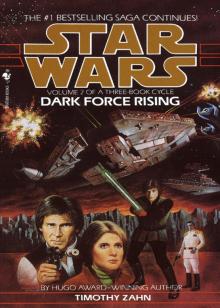 Star Wars: Dark Force Rising
Star Wars: Dark Force Rising Star Wars - Outbound Flight
Star Wars - Outbound Flight Blackcollar: The Judas Solution
Blackcollar: The Judas Solution The Green And The Gray
The Green And The Gray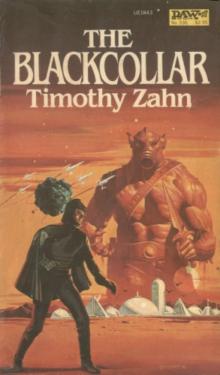 Blackcollar: The Blackcollar
Blackcollar: The Blackcollar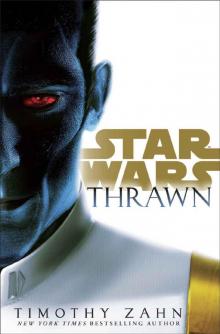 Star Wars_Thrawn
Star Wars_Thrawn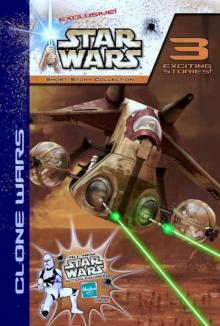 Star Wars - Duel
Star Wars - Duel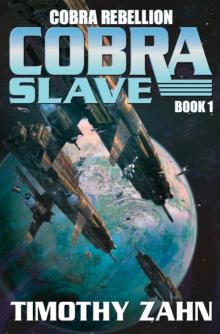 Cobra Slave-eARC
Cobra Slave-eARC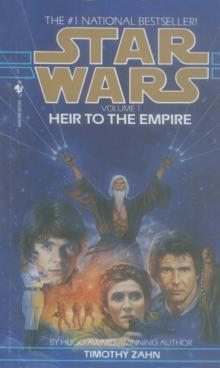 Star Wars: Heir to the Empire
Star Wars: Heir to the Empire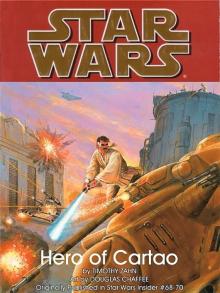 Star Wars: Clone Wars Stories: Hero of Cartao
Star Wars: Clone Wars Stories: Hero of Cartao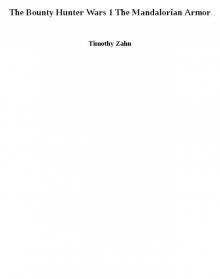 The Bounty Hunter Wars 1 The Mandalorian Armor
The Bounty Hunter Wars 1 The Mandalorian Armor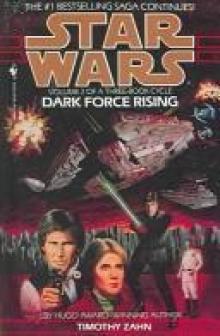 Dark Force Rising (Star Wars) swtt-2
Dark Force Rising (Star Wars) swtt-2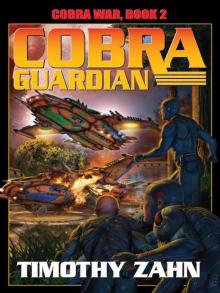 Cobra Guardian: Cobra War: Book Two
Cobra Guardian: Cobra War: Book Two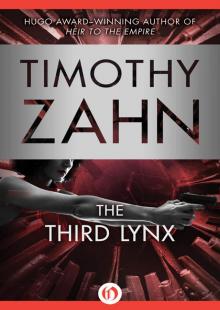 The Third Lynx (Quadrail Book 2)
The Third Lynx (Quadrail Book 2) Time Bomb And Zahndry Others
Time Bomb And Zahndry Others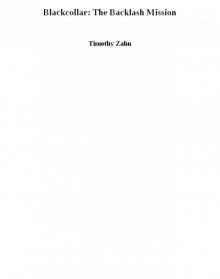 Blackcollar: The Backlash Mission
Blackcollar: The Backlash Mission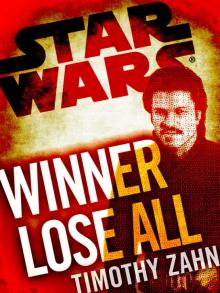 Winner Lose All--A Lando Calrissian Tale: Star Wars
Winner Lose All--A Lando Calrissian Tale: Star Wars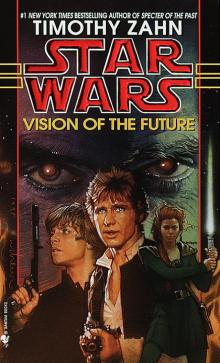 Star Wars: The Hand of Thrawn II: Vision of the Future
Star Wars: The Hand of Thrawn II: Vision of the Future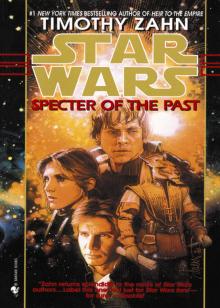 Specter of the Past
Specter of the Past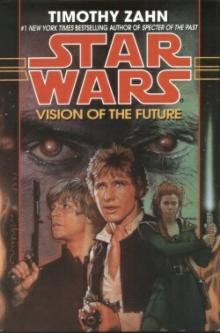 Star Wars - Hand of Thrawn 2 - Vision of the Future
Star Wars - Hand of Thrawn 2 - Vision of the Future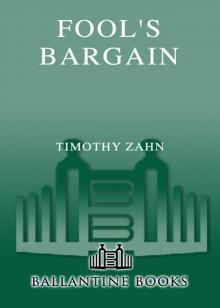 Fool's Bargain
Fool's Bargain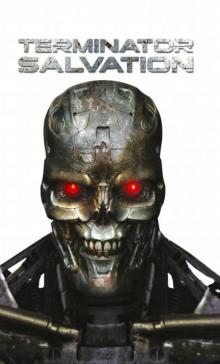 From the Ashes
From the Ashes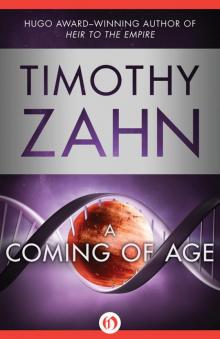 Coming of Age
Coming of Age